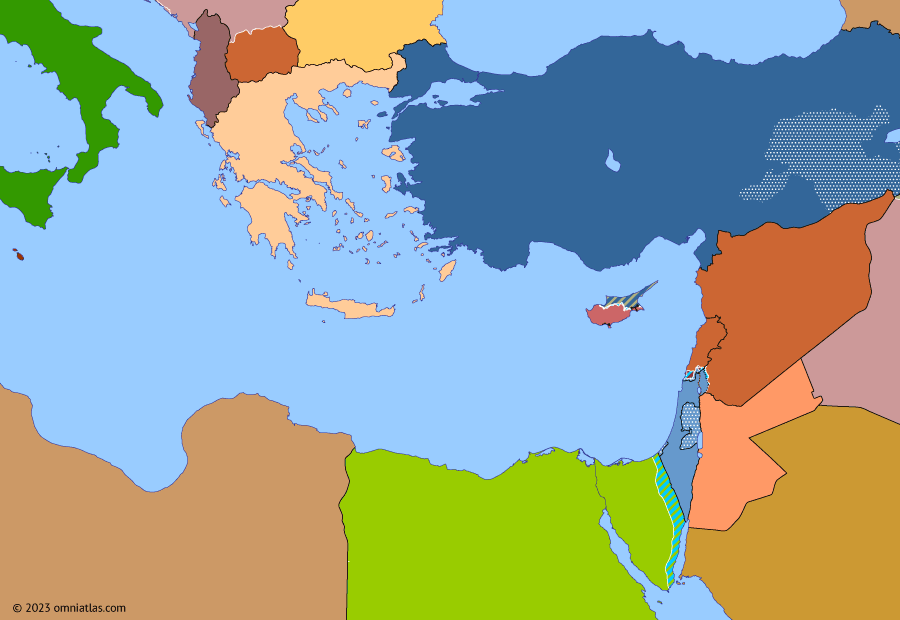Eastern Mediterranean 1991: Collapse of the Eastern Bloc

17 September 1991
17 Sep 1991
Collapse of the Eastern Bloc
22 Jul 1974 Turkish invasion of Cyprus
15 Nov 1976 Lebanese Civil War
19 Mar 1978 Operation Litani
25 May 1979 Israeli withdrawal from Sinai
22 Dec 1980 Battle of Zahlé
18 Aug 1982 1982 Lebanon War
5 Feb 1984 Multinational Force in Lebanon
19 May 1986 War of the Camps
15 Nov 1988 First Intifada
17 Sep 1991 Collapse of the Eastern Bloc
18 May 1994 Palestinian National Authority
14 Mar 1997 Anarchy in Albania
20 Mar 2001 Second Intifada
22 Jul 2006 2006 Lebanon War
14 Jun 2007 Hamas’s takeover of Gaza
16 Jan 2009 Operation Cast Lead
In 1989 the Cold War came to an abrupt end as the Soviet Union’s attempts to reform allowed the countries of the Eastern Bloc to throw off communist rule. Two years later, both the Socialist Federal Republic of Yugoslavia and the Soviet Union itself collapsed as their component states ended local communist rule and asserted their independence.